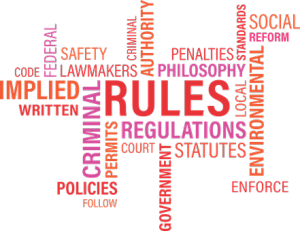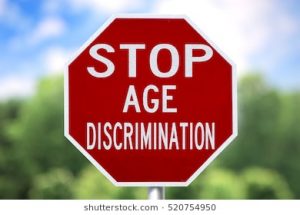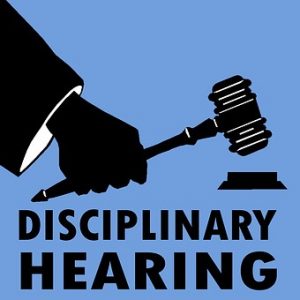 In December of 2017 New Jersey’s then-Governor Chris Christie signed off on several pieces of legislation to help those with criminal histories turn their lives around and become more productive members of society. For example, Governor Christie signed off on a bill barring employers from inquiring about an applicant’s criminal history during the initial job application process. Around that same time, he also enacted a law to alter the requirements for individuals to be eligible for an expungement of their criminal records. Those changes took effect as of October 1, 2018.
In December of 2017 New Jersey’s then-Governor Chris Christie signed off on several pieces of legislation to help those with criminal histories turn their lives around and become more productive members of society. For example, Governor Christie signed off on a bill barring employers from inquiring about an applicant’s criminal history during the initial job application process. Around that same time, he also enacted a law to alter the requirements for individuals to be eligible for an expungement of their criminal records. Those changes took effect as of October 1, 2018.
An expungement of criminal records generally has the effect of causing the arrest, conviction and/or any related proceedings to be deemed not to have occurred. In most cases, a person who has had her records expunged may answer “no” to any questions relating to whether an arrest, conviction, or any such proceeding occurred. There are a few exceptions. For instance, in a job application for a position with the court (judicial branch); in an application for another expungement, or to a court in relation to accepting the person into a treatment or other diversion program, the fact of an expungement and the criminal history may still need to be disclosed. However, the records are not made available for any type of background check in other instances (such as for private employment).
The new changes to New Jersey’s expungement laws include several significant alterations in the eligibility requirements for expungements. For instance, an individual used to have to wait 10 years to expunge a felony conviction. That has now been reduced to 6 years. There is also an early pathway for such expungements if the applicant can establish that the expungement is in the public interest, and in consideration of the nature of the offense and the character of the applicant. That early pathway was available previously, and remains in place with a waiting period of only 5 years. Also, the waiting period for expunging juvenile offenses was also reduced from 5 years to 3 years.
 New Jersey Lawyers Blog
New Jersey Lawyers Blog


 Very often, a person or business will want to confer a benefit on a third party but will not be able to do so itself, for a variety of reasons. So then, to make sure the benefit will be conferred, it will enter into a contract with a person or business which has the ability to confer the benefit. The question, then, is what rights does the third-party beneficiary have?
Very often, a person or business will want to confer a benefit on a third party but will not be able to do so itself, for a variety of reasons. So then, to make sure the benefit will be conferred, it will enter into a contract with a person or business which has the ability to confer the benefit. The question, then, is what rights does the third-party beneficiary have? New Jersey’s Supreme Court adopted new rules which became effective September 1, 2018. These rules amend New Jersey’s Rules of Court to make the litigation of complex business law matters more efficient. This article discusses some of the major changes the new rules have brought about.
New Jersey’s Supreme Court adopted new rules which became effective September 1, 2018. These rules amend New Jersey’s Rules of Court to make the litigation of complex business law matters more efficient. This article discusses some of the major changes the new rules have brought about. Before you enter into an agreement to purchase a franchise, it is vital to review and understand the documents you are being required to sign. You will be required to execute the following documents:
Before you enter into an agreement to purchase a franchise, it is vital to review and understand the documents you are being required to sign. You will be required to execute the following documents: The United States District Court for the District of New Jersey recently issued a decision which illustrates some of the weaknesses in both Federal and New Jersey Employment law, particularly Title VII of the Civil Rights Act of 1964 and New Jersey’s Law Against Discrimination. Our attorneys represent both employers and employees in employment law, and this issue is of utmost concern to us.
The United States District Court for the District of New Jersey recently issued a decision which illustrates some of the weaknesses in both Federal and New Jersey Employment law, particularly Title VII of the Civil Rights Act of 1964 and New Jersey’s Law Against Discrimination. Our attorneys represent both employers and employees in employment law, and this issue is of utmost concern to us. As previously discussed
As previously discussed  Amazingly, despite the law being clear for many years that age discrimination in employment is illegal, and despite the fact that both research and experience have shown the value of mature workers, age discrimination against older employees continues to be widespread in New Jersey and the country at large. Both the Federal Age Discrimination in Employment Act and New Jersey’s Law Against Discrimination provide strict prohibitions against employers and supervisors discriminating against older employees.
Amazingly, despite the law being clear for many years that age discrimination in employment is illegal, and despite the fact that both research and experience have shown the value of mature workers, age discrimination against older employees continues to be widespread in New Jersey and the country at large. Both the Federal Age Discrimination in Employment Act and New Jersey’s Law Against Discrimination provide strict prohibitions against employers and supervisors discriminating against older employees. On June 27, 2018, the United States Supreme Court issued an important employment law decision in the case of Janus v. American Federal of State, County and Municipal Employees (“AFSCME”). Prior to Janus, the general law was that public sector unions (i.e. unions comprised of governmental employees) could collect fees from employees even when the employee did not want to join the union. The prior law was set in the case of
On June 27, 2018, the United States Supreme Court issued an important employment law decision in the case of Janus v. American Federal of State, County and Municipal Employees (“AFSCME”). Prior to Janus, the general law was that public sector unions (i.e. unions comprised of governmental employees) could collect fees from employees even when the employee did not want to join the union. The prior law was set in the case of  Our employment attorneys represent applicants who have been removed from lists of eligibles for Civil Service positions for a variety of reasons including disqualification for failing background check, failing to maintain residency, and psychological and medical disqualification.
Our employment attorneys represent applicants who have been removed from lists of eligibles for Civil Service positions for a variety of reasons including disqualification for failing background check, failing to maintain residency, and psychological and medical disqualification. New Jersey’s government employees provide a wide range of services without which the public could not survive. These range from law enforcement to firefighting, mass transit, garbage removal, building and maintaining roads, ensuring the safety of buildings, protecting the civil rights of New Jersey’s citizens, protecting the environment, traffic safety, urban planning, parks, agriculture, guarding inmates, the list goes on – in short, they affect virtually every aspect of our lives.
New Jersey’s government employees provide a wide range of services without which the public could not survive. These range from law enforcement to firefighting, mass transit, garbage removal, building and maintaining roads, ensuring the safety of buildings, protecting the civil rights of New Jersey’s citizens, protecting the environment, traffic safety, urban planning, parks, agriculture, guarding inmates, the list goes on – in short, they affect virtually every aspect of our lives.